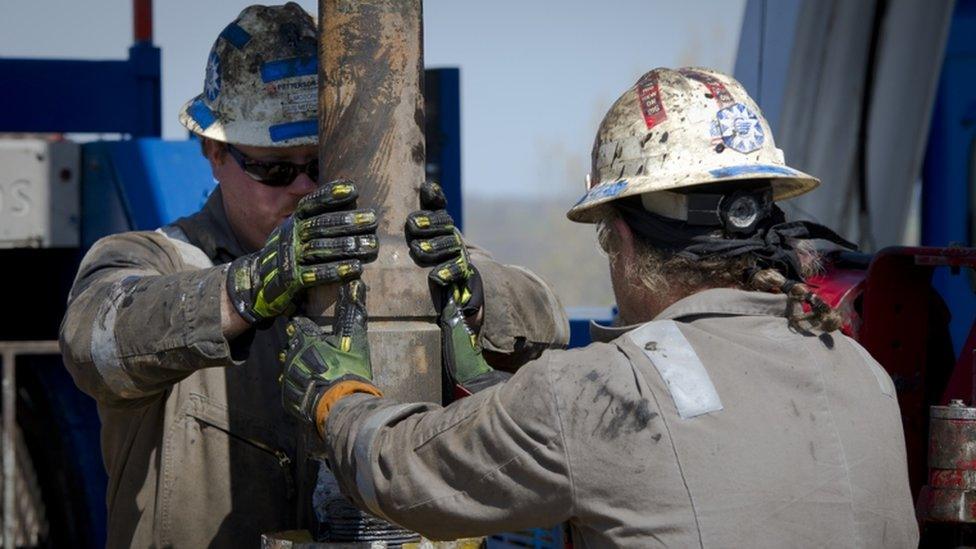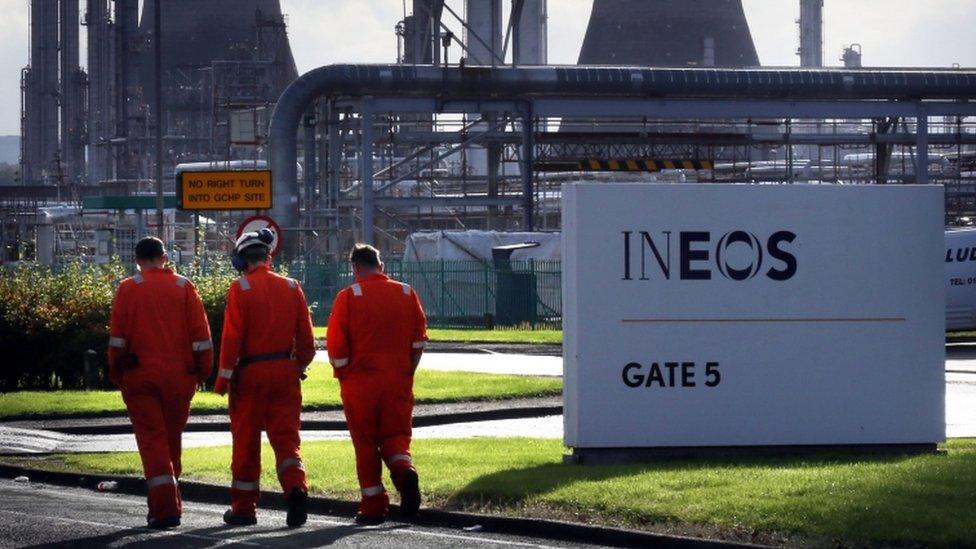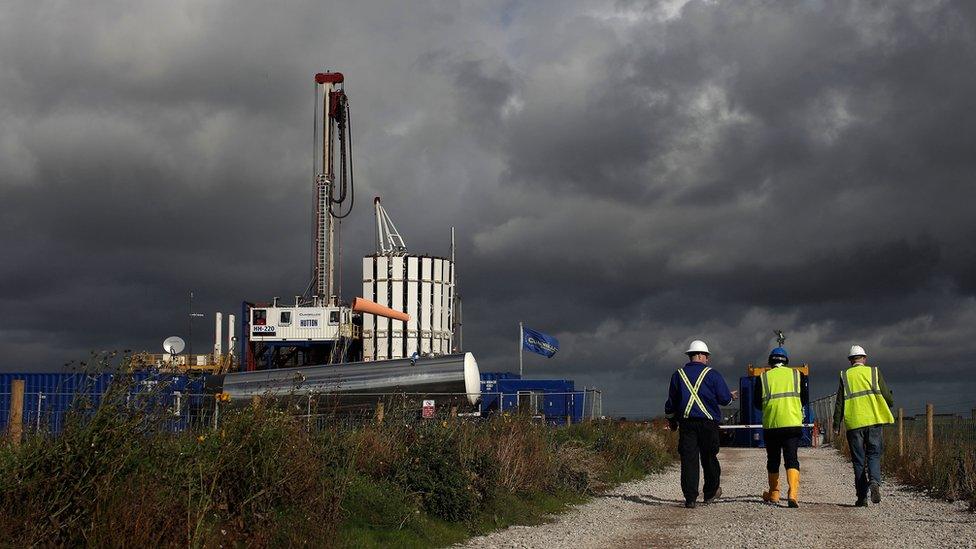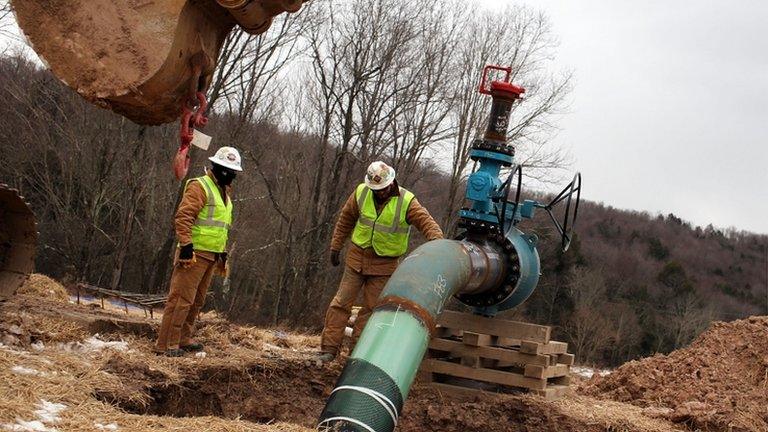Judge urged to reject fracking ban challenge
- Published
- comments

A senior lawyer has urged a judge to throw out a legal action aimed at overturning the Scottish government's "ban" on fracking.
The case has been brought to the Court of Session by petrochemical companies Ineos and Reach CSG.
They say the Scottish government acted illegally in announcing an "effective ban" last year.
But advocate James Mure QC, who is acting for the government, insisted that a ban is not actually in place.
He insisted the government had "not yet adopted a position" on whether to impose a ban - with a final decision not due until later this year.
The Scottish government announced a moratorium - or temporary halt - on fracking in 2015 while it sought the opinions of experts and the public on whether the controversial oil extraction technique should be allowed in Scotland.
After considering the evidence for two years, ministers concluded there was "overwhelming opposition" and announced what was described at the time as an "effective ban".
Nicola Sturgeon later told MSPs that: "Fracking is being banned in Scotland - end of story".
The move did not involve legislation, with local authorities being instructed not to consent planning for any fracking-related activities in their areas.
Ineos and Reach are seeking a judicial review of the decision, arguing that the government has converted a moratorium on the gas extraction into an unlimited ban.
Ineos, which owns the Grangemouth refinery, holds two fracking licences in Scotland and imports fracked shale gas from the United States to process at its refinery in Grangemouth.
It claims that ministers at Holyrood made "very serious" errors in their decision-making process.

The case is being brought by Grangemouth operator Ineos
The company also believes a ban on fracking would result in Scotland missing out on economic benefits, including about 3,100 jobs and £1bn for local communities.
And it claims that millions of pounds it invested in acquiring the fracking licences and obtaining planning permission for drilling sites had been "rendered worthless".
Ineos and Reach want the court to declare that it is unlawful for Scottish ministers to use their powers under planning legislation to ban fracking in Scotland, pointing out that the licences were originally issued by the Westminster government.
The petrochemical companies are also seeking damages - although the exact sum is not mentioned in legal papers.
'Preferred position'
When the case started on Tuesday, Mr Mure argued that the action should be dismissed.
He insisted the companies were mistaken in thinking that a ban was in place, and said that ministers were still considering whether fracking should be stopped - with a decision due in October of this year.
Mr Mure added: "The concept of an effective ban is a gloss. It is the language of a press statement. What they have done is to announce a preferred position on the issue.
"They have not yet adopted a position. Any position which the government will take has to undergo an environmental and strategic assessment.
"The court should therefore allow the policy-making process to go to finalisation which is expected in October this year."
The Scottish government later said it has "made its preferred position clear", and this is now subject to a Strategic Environmental Assessment.

What is fracking?
The BBC's David Shukman explains how fracking works
Hydraulic fracturing, or fracking, is a technique used to recover gas and oil from shale rock by drilling down into the earth before directing a high-pressure water mixture at the rock to release the gas inside.
Water, sand and chemicals are injected into the rock at high pressure which allows the gas to flow out to the head of the well, where it can be collected.
Fracking allows drilling firms to access difficult-to-reach resources of oil and gas, and has been credited with significantly boosting US oil production.
But opponents point to environmental concerns raised by the extensive use of fracking in the US.
They say potentially carcinogenic chemicals used in the process may escape and contaminate drinking water supplies around the fracking site, although the industry argues any pollution incidents are the results of bad practice, rather than an inherently risky technique.
There have also been concerns that the fracking process can cause small earth tremors.
And campaigners say the transportation of the huge amounts of water needed for fracking comes at a significant environmental cost.
- Published9 January 2018

- Published24 October 2017

- Published3 October 2017

- Published3 October 2017
